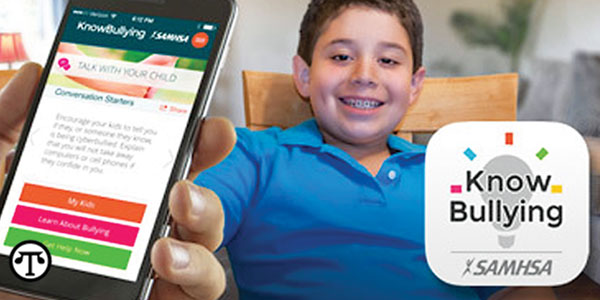 |
|
|
(NAPSI)—There’s good news, bad news and better news when it comes to children being bullied. The good news is that the incidence of bullying among teens is at an all-time low. The bad news is that one in five kids still experiences bullying. The better news is that there are steps that parents, teachers and others can take to prevent the problem. What To Do About Bullying 1. Spend at least 15 minutes a day talking with your child. Research shows this can build the foundation for a strong relationship, boost your children’s confidence and build effective strategies for facing bullying—whether children are being bullied, engaging in bullying or witnessing bullying. 2. Know what’s going on at school, who their friends are and any challenges they face. Read class newsletters and school flyers. Check the school website, go to school events, meet teachers and counselors at “Back to School” night. Know how to reach the parents of classmates. 3. Encourage kids to speak to a trusted adult if they are feeling unsafe or are bullied, or see others being bullied. The adult can give comfort, support and advice, even if he or she can’t solve the problem directly. Sharing concerns and fears with a safe and caring adult can bring about meaningful solutions. 4. Talk about how to stand up to kids who bully. Give tips, including using humor and saying “stop” directly and confidently. Talk about what to do if those actions don’t work, such as walking away or seeking help from an adult. 5. Talk about strategies for staying safe, such as staying near adults or groups of other kids. 6. Urge kids to help others who are bullied by showing kindness or getting assistance from an adult. 7. Model treating others with kindness and respect. Kids learn by observing adults. Even if it seems like they are not paying attention, kids watch how adults manage stress and conflict, as well as how they treat their friends, colleagues and families. By treating others with kindness and respect, adults demonstrate healthy communication and behavior. 8. Have your kids take part in activities, interests and hobbies in and outside of school. This will give them a chance to have fun and meet others with the same interests, building confidence and friendships. 9. Get help from the mobile app KnowBullying. Created by the Substance Abuse and Mental Health Services Administration (SAMHSA), the agency within the U.S. Department of Health and Human Services that deals with substance abuse and mental illness. Learn More: |
|












 20 lucky winners will win $500 each in prizes totaling $10,000.
20 lucky winners will win $500 each in prizes totaling $10,000. 